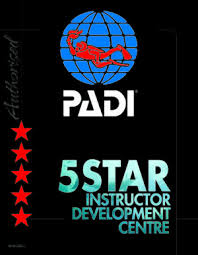Find the Answers You Need Here!
What's Involved in Learning to Scuba Dive?
Learning to scuba dive with West Shore Scuba and PADI is an exciting adventure! The training is divided into three phases:
-
Knowledge Development – Learn the basics of scuba diving, including how pressure affects your body and how to choose the right gear. You’ll complete online or in-person learning and take quizzes to reinforce key concepts.
-
Confined Water Dives – Practice essential skills in a controlled water setting, such as setting up your gear, clearing water from your mask, and emergency techniques.
-
Open Water Dives – Apply what you’ve learned in real diving conditions, either locally in Pennsylvania or on a diving trip. These dives complete your certification!
How Long Does It Take to Get Certified?
You can complete the confined and open water dives in as little as two to three days if you choose online learning through PADI E-Learning. The course is flexible and performance-based, so you progress at your own pace.
Start your journey online today with West Shore Scuba and PADI E-Learning!
How Much Do Scuba Lessons Cost?
The Open Water Certification course consists of three main components:
-
Confined Water (Pool) Sessions with eLearning: $425
-
Open Water Dives: $400 (includes gear rental and admission for the weekend)
Additionally, you’ll need personal gear like a mask, fins, snorkel, boots, and a logbook. Our World Traveler Package, which includes all of this and more, costs $345.
Scuba diving is an incredible investment in lifelong adventure. Start learning online and get ready to take your first breaths underwater.
What Scuba Gear Do I Need?
You’ll need personal gear including:
-
Mask
-
Snorkel
-
Boots
-
Fins
-
Logbook
West Shore Scuba provides essential equipment like a regulator, buoyancy control device (BCD), dive computer, wetsuit, tanks, and a weight system as part of your certification package.
We recommend investing in your own gear for better comfort and convenience! As you progress in your dive journey, you may want to expand your gear arsenal based on dive climates, activities, specialties, etc.
How Do I Know What the Best Scuba Gear Is?
Easy. There is no best gear, but there is the best gear for you. The professionals at West Shore Scuba are trained to help you find scuba gear that best matches your preferences, fit and budget. These professionals can get you set with the right stuff, plus they provide service and support for years of enjoyable and dependable use.
What Are the Requirements for Scuba Lessons?
-
Age: Minimum 10 years old (ages 10-14 receive a Junior Open Water certification). We offer Bubble Maker and Seal Team missions for those between 8 and 10.
-
Physical Health: Complete a medical questionnaire. If you have certain medical conditions, a doctor’s approval may be required.
-
Swimming Skills: Swim 200 yards (or 300 yards with a mask, fins, and snorkel) and tread water for 10 minutes.
West Shore Scuba welcomes divers of all abilities and offers adaptive techniques for those with physical challenges.
Where Can I Scuba Dive?
You can dive practically anywhere there's water – from a swimming pool to the ocean and all points in between, including quarries, lakes, rivers and springs. Where you can scuba dive is determined by:
- Diver experience
- Accessibility
- Conditions and interests
- Availability of your dive buddy
Don't limit your idea of diving to the warm, clear water you see in travel magazines. Some of the best diving is closer than you think. Your go-to dive site may be anything from one of our many local quarries or dive sites up and down the East Coast to a Caribbean coral reef. Either way, West Shore Scuba can help you organize great local diving or a dive vacation.
Common Concerns About Scuba Diving
-
Ear Pressure: Learning to equalize your ears prevents discomfort. If you can handle air pressure changes while flying, you’ll likely be fine diving.
-
Medical Conditions: Conditions like asthma or diabetes don’t always prevent diving, but consult a physician. Physicians can consult the Divers Alert Network (DAN) when assessing a scuba candidate.
-
Common Injuries: Sunburn and seasickness are the most common issues, both easily preventable. Other common injuries include marine life scrapes and stings. You will learn to avoid this by practicing good neutral buoyancy in your open water course.
-
Sharks: Shark encounters are rare. If you see one, consider yourself lucky!
-
Depth Limits: Beginners dive up to 60 feet (or 40 feet for Junior Divers). Certified divers can go as deep as 130 feet.
-
Running Out of Air: You’ll learn backup options, like sharing air with a buddy.
-
Claustrophobia: Many find scuba diving freeing! We offer training at your pace to ensure comfort.


